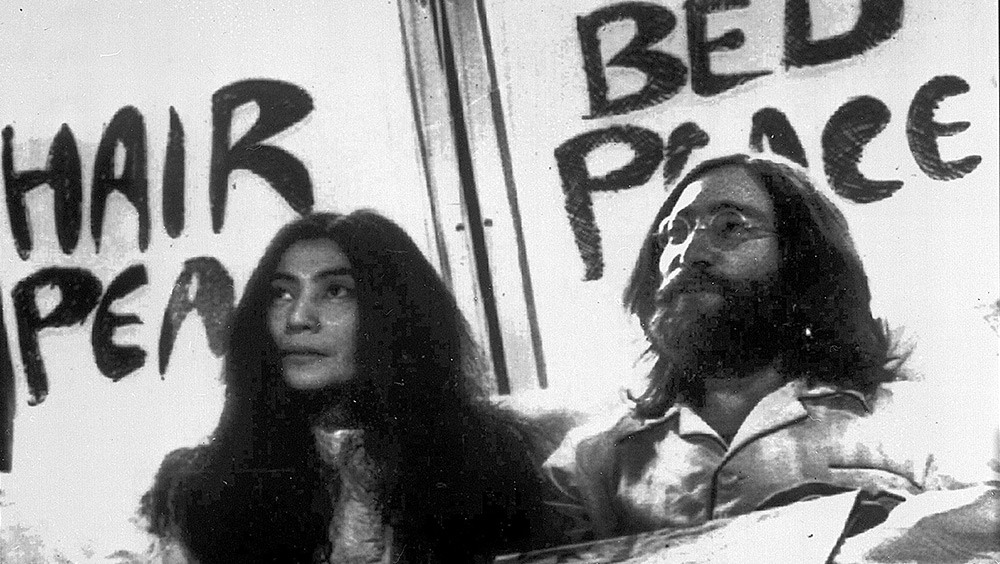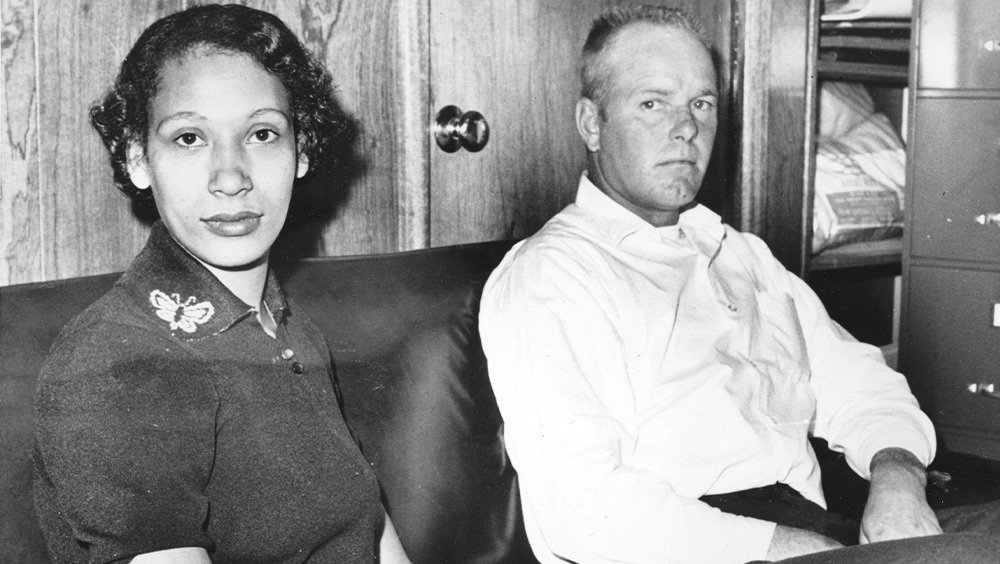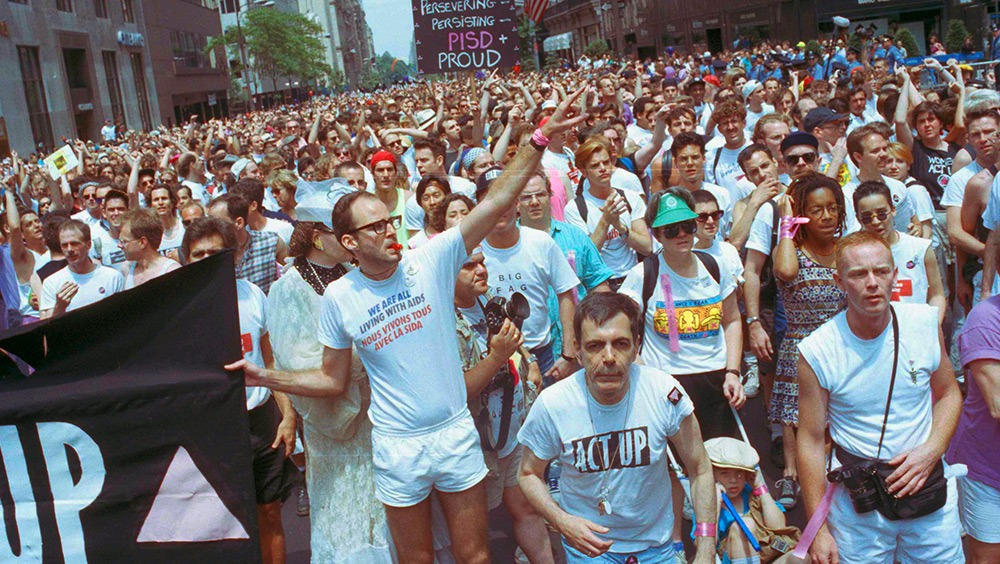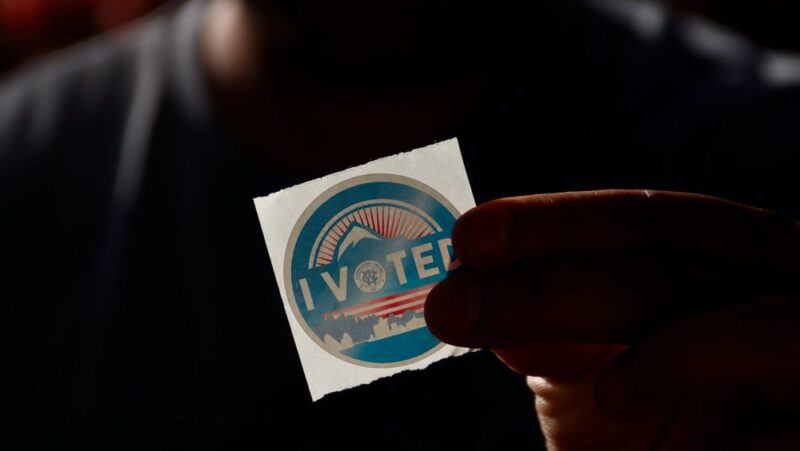5 Protests That Highlight the Power of Love

Valentine's Day is all about the power of love. Here are five times people used their First Amendment freedoms to promote love – or used love as a form of protest.
Discover 5 love-inspired protests we, well, love ...
The Lovings secure the right to interracial marriage, 1967
The Lovings went all the way to the U.S. Supreme Court to protect the right to marry.
Mildred and Richard Loving married in 1958 in Washington, D.C. When they went home to Virginia, they were arrested in the middle of the night. Mildred was Native American and Black. Richard was white. Virginia's laws banned interracial marriage. The Lovings were forced to leave their home state or face prison.
They petitioned the courts to recognize their marriage and allow them to live openly in Virginia. During some of that time, they lived in Washington, D.C. But some of the time they also lived secretly in Virginia, knowing they could be arrested if discovered. Nine years later, their case made it to the Supreme Court.
On June 12, 1967, a unanimous Supreme Court ruling overturned Virginia's law against interracial marriage. The court said marriage was a constitutional right and to deny it based on race was wrong.
Today, "Loving Day" is unofficially celebrated each June 12. The Lovings are remembered for exercising their First Amendment freedom to petition the government to protect their own and other couples' love.

Richard and Mildred Loving in January 1965.
A Beatle and his bride promote peace, 1969
Newlyweds John Lennon and Yoko Ono spent their honeymoon in bed to promote peace and love at the height of the Vietnam War.
When Lennon and Ono married in March 1969, it was a major media event. They decided to capitalize on the attention and use their free speech to draw attention to an issue they both cared about.
The pair booked a hotel room in Amsterdam and invited reporters into their honeymoon, teasing a potentially steamy spectacle. When reporters arrived, they found Lennon and Ono in a weeklong "bed-in" for peace.
The U.S. had escalated rather than ended the Vietnam War under newly inaugurated President Richard M. Nixon. Opposition to the war was growing, and Lennon and Ono were part of the anti-war movement.
At their "bed-in for peace," they donned white pajamas and spread an "All You Need is Love" bedspread on their bed. Signs in the room read "bed peace" and "hair peace."
The newlyweds recreated their bed-in again in Vienna and Montreal (Lennon wasn't able to come to the United States due to drug charges).
Along with their acts of assembly, the duo also exercised their free press rights to pay for anti-war billboards in major cities and send anti-war cards and posters, extending the reach of their message.
ACT-UP's kiss-ins, 1980s and '90s
In 1987, the AIDS Coalition to Unleash Power, or ACT-UP, was formed in reaction to the government's slow response to the AIDS epidemic.
Throughout the late 1980s, ACT-UP took direct action with events like staged kiss-ins to protest the lack of support for and discrimination against HIV patients and the LGBTQ+ community.
ACT-UP's protests drew attention for being creative and controversial.
The group staged several "kiss-ins," where members would gather and kiss in unison to fight misinformation about the spread of HIV and the stigma attached to it.
A February 1988 kiss-in at St. Patrick's Cathedral in New York City protested the Catholic Church's stance on the LGBTQ+ community.
In April 1988, on a cold and rainy night, LGBTQ+ activists marched down Christopher Street toward New York's Sheridan Square for a kiss-in.
Similar events were held at St. Vincent's hospital in New York; at the 1988 Democratic National Convention in Atlanta; during a 1989 Pride festival in Santa Ana, California; and in the Arkansas hometown of then-presidential candidate Bill Clinton in 1992.
ACT-UP also partnered with an AIDS activist art collective to produce a "Kissing Doesn't Kill" ad campaign featuring photos of gay couples kissing.

Members of ACT-UP march in New York's annual Gay Pride Parade in June 1990.
Obergefell and Arthur sue for marriage rights, 2015
Jim Obergefell and John Arthur's marriage spanned just three months of their more than 20 years together. But their petitions to secure and protect their marriage opened access to legal marriage for many more couples.
Obergefell and Arthur had been together for decades when Arthur was diagnosed with a fatal disease in 2011. Two years later, the Supreme Court struck down a federal marriage law, opening the door for the two to legally marry, at last.
However, same-sex marriage still was not legal in Ohio, where they lived. But it was legal in Maryland. Obergefell and Arthur, who was receiving end-of-life care by then, flew to Maryland. They got married on the plane on the tarmac when they arrived.
A lawyer friend alerted them days later that Ohio still refused to recognize the marriage. Obergefell would not be listed as surviving spouse on Arthur's death certificate. They sued – and won. But the state of Ohio appealed. In the next court, the couple lost.
Arthur died in October 2013, but Obergefell petitioned the Supreme Court to reconsider the case.
In June 2015, the court ruled 5-4 that states must recognize other states' marriages. Neither man set out to be an activist, but when they exercised their freedom to petition, they brought about change.
View this post on Instagram
'Love is Louder' in Augusta, Maine, 2023
After a string of hate incidents in Maine's capital city, organizers assembled to show their neighbors love.
In August 2023, residents started noticing an increase in hateful actions, including antisemitic and anti-immigrant vandalism of public property and disruptions of public meetings. A broad group decided to exercise the freedoms of speech and assembly to counter the hateful messages.
The "Love is Louder" rally in a city park gathered dozens of people from across a range of viewpoints and causes. Speeches and a band accompanied signs decorated with hearts.
Messages at the event included support for people who had experienced discrimination and for all members of the diverse community.
Patty Rhule, Freedom Forum chief content officer and vice president, contributed to this article.
When it comes to First Amendment rights, do we want a sword or a shield?
Teachers Face Limits on Their Election-Related Speech
Related Content

